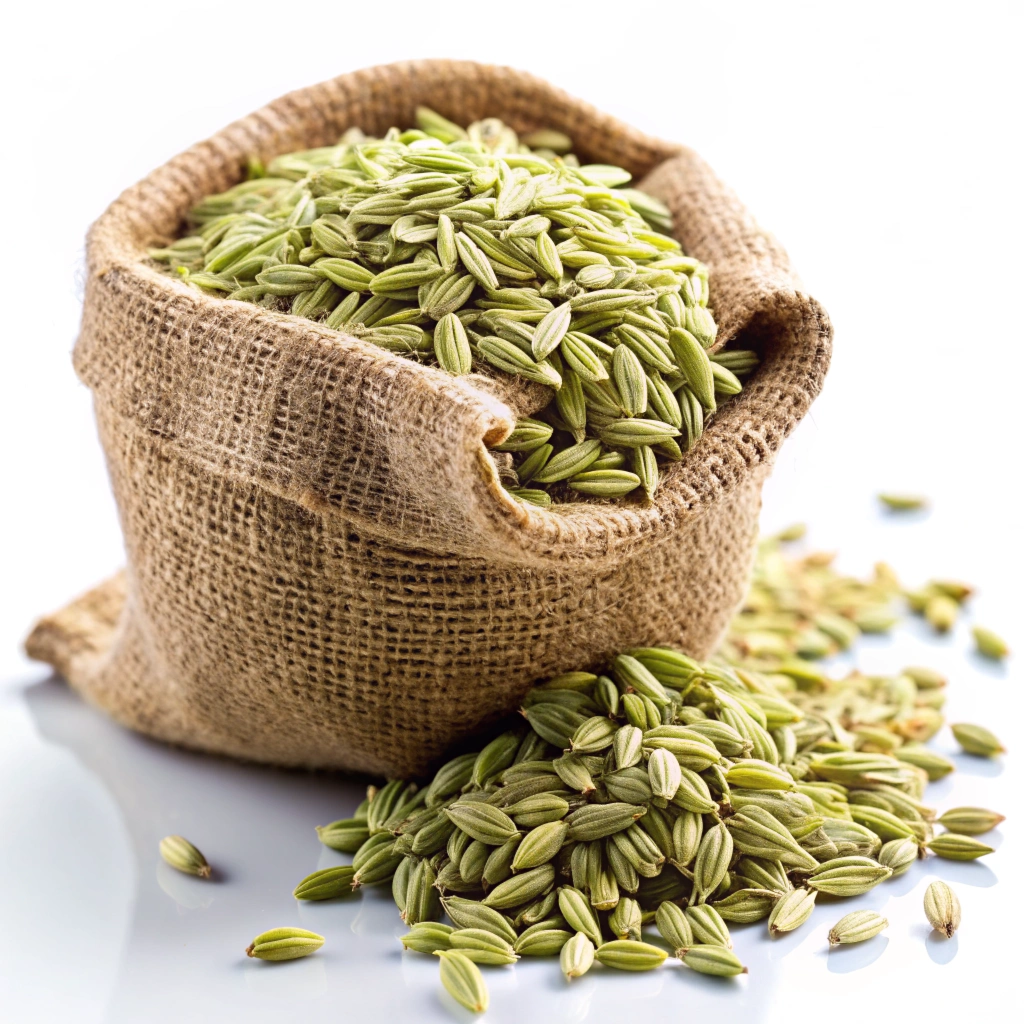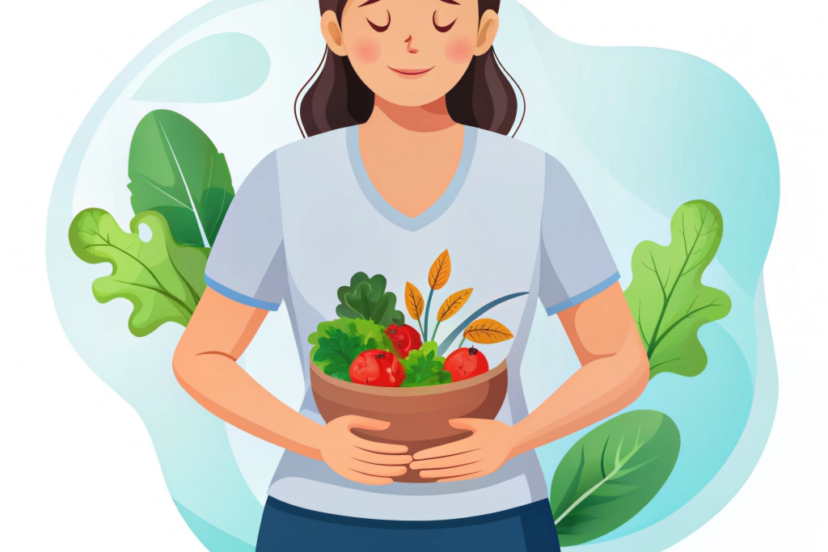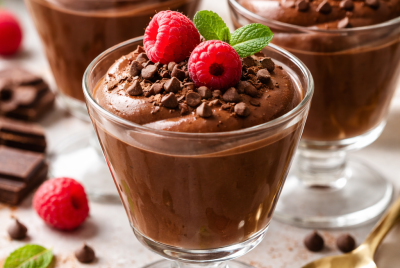17 Easy Ways to Reduce Bloating on a Plant-Based Diet
I’ve been on a plant-based diet for almost ten years, and let me tell you, it’s been an amazing journey – with no visits to the doctor. But, like many of you, I’ve had my fair share of challenges, especially when it comes to bloating. It’s a common issue, but the good news is that there are simple ways to reduce gassiness and enjoy the health benefits of a plant-based lifestyle without the discomfort. I’m happy to share with you some effective strategies and simple tips that have worked wonders for me. Make sure you read till the end where I share my personal story about my plant based diet bloating experience and how I found a natural remedy – which is also cheap, instantaneous and so easy.
Understanding Plant-Based Diet Bloating
What Causes Bloating on a Plant-Based Diet?
Bloating is often caused by an increase in dietary fiber intake, which is a common side effect when transitioning to a plant-based diet. High-fiber foods like fruits, vegetables, whole grains, and legumes can sometimes lead to excess gas and abdominal bloating as your digestive system adjusts to the new diet.
Top 10 Plant Foods That Cause Bloating
While plant-based foods are incredibly nutritious and beneficial for overall health, some of them can be notorious for causing bloating. Understanding which foods might be the culprits can help you manage and reduce digestive discomfort. Here are the top 10 plant-based foods that are commonly associated with bloating:
1. Beans and Lentils
Why They Cause Bloating: Beans and lentils are high in fiber and contain complex sugars known as oligosaccharides, which are not easily digested. These sugars are fermented by gut bacteria, producing gas as a byproduct.
Tips to Reduce Bloating: Soak beans and lentils overnight before cooking and start with smaller portions to help your digestive system adjust.
2. Cruciferous Vegetables
Examples: Broccoli, cauliflower, Brussels sprouts, cabbage.
Why They Cause Bloating: Cruciferous vegetables contain raffinose, a complex sugar that can be difficult to digest. When broken down in the large intestine, it produces gas.
Tips to Reduce Bloating: Cook these vegetables thoroughly, as cooking breaks down some of the fibers, making them easier to digest.
3. Onions and Garlic
Why They Cause Bloating: Onions and garlic contain fructans, a type of soluble fiber that can lead to gas and bloating.
Tips to Reduce Bloating: Use smaller amounts or opt for garlic-infused oils, which can provide flavor without the digestive discomfort.
4. Whole Grains
Examples: Wheat, barley, rye.
Why They Cause Bloating: Whole grains are high in fiber and contain gluten, both of which can contribute to bloating, especially for those with gluten sensitivity.
Tips to Reduce Bloating: Gradually increase your fiber intake and consider gluten-free alternatives if you suspect gluten sensitivity or have celiac disease.
5. Apples and Pears
Why They Cause Bloating: These fruits are high in fiber and contain fructose, a natural sugar that can cause gas and bloating in some individuals.
Tips to Reduce Bloating: Eat these fruits in moderation and pair them with other low-fiber foods to help balance your fiber intake.
6. Dairy-Free Alternatives
Examples: Almond milk, soy milk, vegan cheese.
Why They Cause Bloating: Some dairy-free alternatives contain added sugars and gums (like carrageenan) that can contribute to bloating.
Tips to Reduce Bloating: Choose unsweetened and gum-free versions of these products when possible.
7. Soy Products
Examples: Tofu, tempeh, edamame.
Why They Cause Bloating: Soy contains oligosaccharides, similar to beans and lentils, which can cause gas and bloating.
Tips to Reduce Bloating: Fermented soy products like tempeh may be easier to digest, so consider incorporating them into your diet.
8. Mushrooms
Why They Cause Bloating: Mushrooms contain polyols, a type of sugar alcohol that can cause bloating and gas in some individuals.
Tips to Reduce Bloating: Limit your intake of mushrooms and see if it helps reduce your symptoms.
9. Avocados
Why They Cause Bloating: Avocados are high in fiber and contain sorbitol, a sugar alcohol that can cause bloating and gas.
Tips to Reduce Bloating: Eat avocados in moderation and monitor your body’s response.
10. High-Fiber Fruits
Examples: Prunes, raisins, figs.
Why They Cause Bloating: These dried fruits are packed with fiber and natural sugars, which can lead to bloating and gas if consumed in large quantities.
Tips to Reduce Bloating: Enjoy these fruits in small portions and ensure you are drinking plenty of water to help your digestive system process the fiber.
Understanding which plant-based foods might be causing your bloating can help you make adjustments to your diet and enjoy the benefits of plant-based eating without the discomfort.
17 Easy Ways to Reduce Bloating on a Plant-Based Diet
1. Increase Fiber Intake Gradually
One of the common culprits of bloating on a plant-based diet is a sudden increase in fiber intake. Start by gradually introducing high-fiber foods into your diet. This allows your digestive system to adjust slowly, reducing the likelihood of excess gas and abdominal bloating.
2. Stay Hydrated
Drinking enough water is crucial for preventing bloating. Fiber absorbs water, so if you increase your fiber intake without increasing your water intake, you might experience constipation and bloating. Make sure to drink water throughout the day to help your digestive system process the fiber.
3. Incorporate Digestive Enzymes
Digestive enzymes can aid in breaking down complex sugars and fibers found in plant-based foods. These enzymes help your digestive system process food more efficiently, reducing the risk of bloating and other digestive issues.
4. Choose Cooked Over Raw Foods
While raw vegetables are packed with nutrients, they can be harder to digest and lead to bloating. Try incorporating more cooked vegetables into your meals. Cooking breaks down the fibers, making them easier on your digestive system.
5. Be Mindful of Cruciferous Vegetables
Cruciferous vegetables like broccoli, cauliflower, and Brussels sprouts are healthy but can cause excess gas. Moderating your intake of these vegetables or cooking them thoroughly can help minimize bloating.
6. Eat Smaller, More Frequent Meals
Large meals can overwhelm your digestive system, leading to bloating. Instead, try eating smaller, more frequent meals throughout the day. This approach can prevent the buildup of excess gas and help maintain better gut health.
7. Monitor Your Intake of Fermentable Carbohydrates
Certain fermentable carbohydrates, found in foods like beans and lentils, can cause excessive gas. Soaking beans and lentils before cooking can reduce their gas-producing properties. Additionally, incorporating red lentils, which are easier to digest, can help minimize bloating.
8. Opt for Whole Food Plant-Based Diet Over Processed Vegan Foods
Processed vegan foods, like some fast food options, can contain additives and preservatives that contribute to bloating. Focus on eating whole foods like fruits, vegetables, grains, and legumes to support a healthy digestive system.
9. Take Probiotics
Probiotics introduce healthy bacteria into your gut, promoting better gut health and reducing bloating. Foods like sauerkraut, kimchi, and probiotic supplements can help maintain a healthy gut microbiota.
10. Go for a Short Walk After Meals
A short walk after meals can help stimulate digestion and reduce the feeling of bloating. This simple tip can make a significant difference in how you feel after eating.
11. Be Aware of Common Culprits
Foods like beans, lentils, and certain vegetables are common culprits of bloating. Identifying and moderating your intake of these foods can help manage bloating symptoms.
12. Adjust Your Fiber Intake
Everyone’s tolerance to fiber is different. Finding the right balance for your body is essential. If you’re experiencing bloating, you might need to adjust the amount of fiber in your diet.
13. Stay Active
Regular physical activity can help maintain healthy bowel movements and reduce bloating. Aim for at least 30 minutes of moderate exercise most days of the week.
14. Drink Herbal Tea
Herbal teas like peppermint, ginger, and chamomile have soothing properties that can help relieve bloating and support digestion.
15. Listen to Your Body
Pay attention to how your body reacts to different foods. Keeping a food diary can help you identify which foods trigger bloating in you and make it easier to adjust your diet accordingly.
Everybody is different. For me, I used to suffer from bloating when I consumed too much legumes. But that was during my first or even two years of shifting to a plant-based diet. Now, my body has been accustomed and I can eat as much legumes as often that I want with no side effect.
Understanding which foods contribute to your bloating and how to manage them can help you enjoy a plant-based diet while minimizing digestive discomfort.
16. Try Peppermint and Peppermint Oil
From my personal experience, I find that mint, whether it’s mint candies or tea, can relieve bloating to some extent. Peppermint and peppermint tea can be used to soothe digestive issues including bloating. It is one of the best teas for bloating because of its high concentration of flavonoids. The latter help to calm the bacteria in your digestive tract which often cause high levels of gas and bloating.
Peppermint oil is an antispasmodic. It aids relieve stomach cramps, bloating and farting (flatulence), particularly if you have irritable bowel syndrome (IBS). It helps the muscle of the bowel wall to relax.
17. Chew some Fennel Seeds
Here’s my personal story. I’ve been a carnivore up to 2014. The following year, I started gradually to drop all meat in my diet, eating only fish, seafood and eggs. Then, the year after, I was on a full vegetarian diet. I only experienced occasional bloating during that first year, especially when I found myself eating legumes more than 3 times per week. So, I made sure to alternate eating them with tofu, soya chunks, etc. and everything was fine. However, in October 2015, I went for a trip in India and where I stayed, we were served Indian meals 3 times a day, from breakfast to dinner. The food was delicious, but it was spicy and contained legumes in every single meal, even at breakfast. So, after a few days of this regimen, my belly inflated like a balloon, and I could barely walk. I don’t know how I survived the rest of the two weeks, but it was still one of the best trips in my life. Apart from the bloating experience, it was like going back home. I liked it so much that I went back to India in February 2017. But this time, I was more prepared. I filled my suitcase with all sorts of foods like cereals, crackers, biscuits, snacks, etc., ready to be unpacked at the first sign of bloating. However, to my surprise, I did not experience any gassy experience whatsoever. Now, one reason might be that my body was now more accustomed to eating legumes, but I think I would have felt some discomfort at one point or another, more so because it was a 3-week trip this time. But, I learned the Indian secret during this second visit. Someone told me to munch a teaspoon of fennel seeds after each meal. I did, and no bloating showed up at any point! I then remembered that in Indian restaurants, they usually display a tray with fennels seeds (often coated with sugar). This is because fennels seeds aid with digestion and relive gassiness. That’s why it’s a common practice in India to chew some fennel seeds after a heavy meal.

So, that would be my top recommendation if you experience bloating, especially after shifting to a plant-based diet. Fennels seeds are readily available in grocery stores, they are cheap and they provide an instant relief. Plus, it’s a natural remedy. So, if you are new to a plant-based diet, definitely consider adding fennel seeds on your grocery list and always keep some in your pantry. Prefer plain organic fennel seeds over candied one (Mukhwas), especially if you have to control your blood sugar level). Let me know if it works for you.

Final thoughts
Bloating can be a frustrating side effect of a plant-based diet, but with a few adjustments, especially with my top recommendation, it’s possible to enjoy all the health benefits without the discomfort. By gradually increasing your fiber intake, staying hydrated, incorporating digestive enzymes, and being mindful of your food choices, you can reduce bloating and feel great. Remember, every body is different, so it’s important to find what works best for you.
FAQs
1. How long does bloating last when going vegan?
Bloating when transitioning to a vegan diet can last anywhere from a few days to several weeks. The duration largely depends on your previous diet, the amount of fiber you’re now consuming, and how quickly your digestive system adapts. According to a study published in the “World Journal of Gastroenterology,” individuals may experience digestive symptoms like bloating for a short period as their gut microbiota adjusts to increased fiber intake and different fermentable carbohydrates found in plant-based foods. It’s important to transition gradually and monitor your body’s responses to manage bloating effectively.
2. How long does it take for your gut to adjust to a plant-based diet?
The adjustment period for your gut to adapt to a plant-based diet typically ranges from a few weeks to a few months. During this time, your gut microbiota undergoes significant changes as it adapts to higher fiber intake and new types of plant-based foods. A study in the “American Journal of Clinical Nutrition” highlights that dietary changes can alter gut microbiota composition and function within a few weeks, but a stable adaptation may take up to several months. Patience and gradual dietary changes can help ease this transition.
3. Why am I so gassy on a plant-based diet?
Increased gas production on a plant-based diet is often due to higher fiber intake and the fermentation of complex sugars by gut bacteria. Plant-based foods like beans, lentils, and cruciferous vegetables contain fermentable carbohydrates, which produce gas as a byproduct of digestion. According to research published in the “Journal of Gastroenterology,” these foods can increase the production of hydrogen and methane gases in the gastrointestinal tract, leading to bloating and flatulence. Gradually increasing fiber intake and incorporating digestive enzymes can help manage gas production.
4. Why does plant-based protein make me bloated?
Plant-based proteins can cause bloating due to their high fiber content and the presence of oligosaccharides, which are types of indigestible sugars. These compounds are fermented by gut bacteria, producing gas as a byproduct. A study in the “Journal of Nutrition” indicates that certain plant-based proteins, like those from legumes and soy, contain fermentable carbohydrates that can contribute to gas and bloating. Soaking and thoroughly cooking legumes, as well as alternating with more easily digestible plant proteins like tofu and tempeh, can help reduce these symptoms.
5. How to stop vegan bloating?
To reduce vegan bloating, consider the following strategies:
- Gradually increase fiber intake: Allow your digestive system time to adjust to higher fiber levels.
- Stay hydrated: Drink enough water to help your body process fiber effectively.
- Incorporate digestive enzymes: These can aid in breaking down complex sugars and fibers.
- Cook vegetables: Cooking breaks down some of the fiber, making it easier to digest.
- Monitor portion sizes: Eat smaller, more frequent meals to prevent overwhelming your digestive system.
- Limit high-gas foods: Reduce intake of foods known to cause gas, like beans, lentils, and cruciferous vegetables.
- Take probiotics: These can improve gut health and reduce bloating.
6. What happens to your body the first week of being vegan?
In the first week of being vegan, your body undergoes several changes as it adjusts to a new diet. You may experience increased energy levels due to a higher intake of whole foods and reduced consumption of processed foods. Digestive changes, including bloating and changes in bowel habits, are common as your gut microbiota adapts to increased fiber intake. According to a study in the “Journal of the Academy of Nutrition and Dietetics,” some individuals may also experience improvements in blood sugar levels and reduced inflammation markers within the first week.
7. Why am I so bloated after switching to vegetarian diet?
Bloating after switching to a vegetarian diet is often due to an increase in fiber intake and the introduction of new plant-based foods. These changes can disrupt your digestive system temporarily as it adjusts. According to research published in the “Nutrition Reviews,” high-fiber diets can increase gas production and bloating, especially if the transition is sudden. Gradually introducing high-fiber foods and ensuring adequate water intake can help manage these symptoms.
8. What is the downside of a plant-based diet?
While a plant-based diet offers numerous health benefits, there are potential downsides to consider:
- Nutrient deficiencies: It may be challenging to get enough vitamin B12, iron, calcium, and omega-3 fatty acids. (Recommended article: Vegan Omega 3: How To Meet Your Daily Requirements)
- Digestive issues: Increased fiber intake can lead to bloating, gas, and changes in bowel habits.
- Social and cultural challenges: Adhering to a plant-based diet in social settings or cultures with meat-centric diets can be difficult.
- Accessibility and cost: In some areas, plant-based options may be less accessible or more expensive.
9. What happens to your body when you start eating plant-based?
When you start eating plant-based, your body undergoes several positive changes:
- Improved digestion: Increased fiber intake supports healthy bowel movements and gut health.
- Weight management: Many people experience weight loss due to a lower calorie density of plant-based foods.
- Reduced inflammation: A diet rich in fruits, vegetables, and whole grains can lower inflammation markers.
- Enhanced heart health: Lower cholesterol and blood pressure levels are common due to reduced saturated fat intake.
10. What happens to your gut when you go vegan?
Going vegan can significantly impact your gut health. The increased fiber intake promotes the growth of beneficial gut bacteria, leading to improved gut microbiota diversity and function. According to a study in “Nutrients,” a vegan diet can increase the production of short-chain fatty acids, which support gut health and reduce inflammation. However, the initial transition may cause digestive discomfort as your gut microbiota adjusts to the new diet.
11. What should I do if I experience persistent bloating?
If you have persistent bloating, it’s a good idea to consult with a healthcare professional. They can help identify any underlying medical conditions and provide personalized advice.




